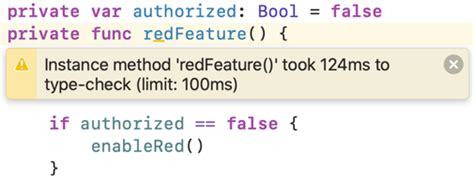The Swift programming language has been a game-changer for many developers, but it often finds itself on the receiving end of criticism for its compile-time performance. For a language marketed on its modernity and developer-friendliness, one might wonder why the Swift compiler tends to be sluggish, particularly when dealing with type inference. The complexity of Swift’s type system, coupled with features like operator overloading and protocol conformations, introduces significant computational overhead during the compilation process. As developers await incremental improvements promised at each WWDC, frustration grows over the inconsistent optimization efforts and lack of robust solutions.
At its core, Swift aims to provide a clean and expressive syntax that allows developers to write less boilerplate code. Type inference plays a critical role here, seeking to infer the types of variables and expressions without explicit annotations. While this approach reduces verbosity and enhances readability, it also leads to performance bottlenecks because the compiler has to evaluate a vast number of potential type combinations. To illustrate, suppose you have a simple line in Swift: let url = "http://" + username + ":" + password + "@" + address + "/api/" + channel + "/picture". The compiler doesn’t just see this as a concatenation of strings and integers; it must explore every possible combination of types that could satisfy this expression, which, given the number of overloads and protocols involved, can run into the tens of thousands.
Community feedback suggests that issues with Swiftc’s slow compile times are exacerbated by Apple’s under-resourced development tools department. According to some, improvements are often shelved or delayed as priorities shift towards adding new features. For instance, explicit modules, initially touted to enhance build efficiency, have on occasion regressed build performance. A developer noted that their project’s build time increased by 50% on an M1 Ultra chip when using explicit modules. These cyclical enhancements, followed by eventual regressions, underscore a persistent, broader problem within Apple’s compiler team.
One cannot discuss Swift’s type inference problems without contrasting it to other languages. For example, Haskell and OCaml have their own sophisticated type inference systems, but they seem to handle things more gracefully. This can largely be attributed to the differences in how they manage overloading and polymorphism. Haskell, for instance, uses a typeclass system that simplifies the compiler’s workload by converting various types into a unified form before applying algorithms, thus avoiding the combinatorial explosion seen in Swift. When type inference takes up to 42 seconds to identify an issue involving a simple addition and concatenation between strings and integers, you know there’s a fundamental issue at play.
While the road to improving Swift’s compiler performance will undoubtedly be complex, there are strategies that could mitigate some of these issues. Developers recommend making compiler hints more explicit, which can be as simple as annotating critical variables and expressions with types where possible. Structural changes are also on the table, including caching intermediate compilation states to avoid redundant calculations. It’s essential for Apple to allocate resources effectively and ensure consistent progress rather than sporadic improvements aligned with their annual events. After all, the future success of Swift depends on it maintaining the delicate balance between developer-friendly syntax and manageable compilation times. Until then, developers are left juggling between the joys of expressive code and the frustrations of waiting for it to compile.


Leave a Reply